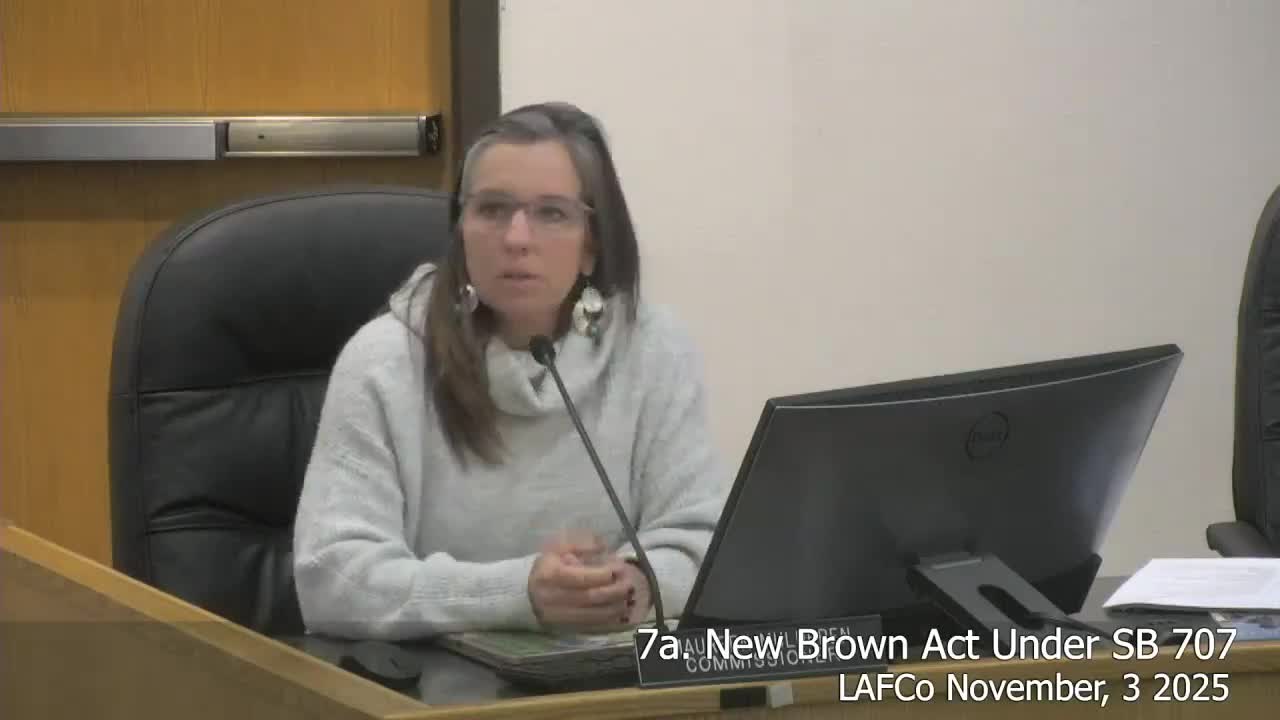SB 707 changes teleconferencing, social media and notice rules; counsel urges caution for small districts
Get AI-powered insights, summaries, and transcripts
Subscribe
Summary
Counsel for Mendocino LAFCO briefed commissioners on SB 707 during the Nov. 3 meeting, outlining teleconferencing, social media, and notice changes that affect the Brown Act and describing next steps for policy updates.
Counsel for Mendocino LAFCO briefed commissioners on SB 707 during the Nov. 3 meeting, outlining which statutory changes apply to this LAFCO and which provisions are aimed at larger agencies.
Counsel Burch told the commission the new law formalizes several pandemic-era teleconferencing flexibilities and makes them permanent in part. She said the law keeps the requirement that the public have both in‑person and remote access and that a quorum still must be physically present at the meeting location, but that it adds an explicit ‘‘just cause’’ category — allowing remote participation for reasons such as illness, caregiving, or childcare for up to two meetings per year — and retains a separate ‘‘emergency circumstances’’ exception without a numeric limit. “There’s not a a limit that’s set in the new law regarding the use of that emergency circumstances,” Counsel Burch said.
Burch also said the statute now requires each newly appointed commissioner to receive a copy of the Brown Act upon appointment. She described guidance in the bill allowing limited social media interactions that do not amount to deliberation and urged commissioners to be conservative online: “If a commissioner is posting something on social media, I would say another commissioner shouldn't engage that post. I wouldn't like it or respond to it in any way,” she said.
Other changes described included a standardization of notice and conduct rules for special and emergency meetings across agencies. Counsel said staff will review LAFCO policies and bring recommended amendments to the policies-and-procedures committee so the commission can act in time for the law’s effective date (staff noted Jan. 1).
Commissioners asked how the changes affect small districts and whether additional requirements (such as agenda translation or other duties for larger agencies) might impose costs; Burch said some new requirements are targeted at larger agencies with higher budgets and that smaller entities may be able to pursue hardship-type remedies in certain contexts, but that staff would prepare a summary and proposed policy edits for the commission’s review.
The commission did not take action on SB 707 at the meeting; counsel recommended that the policies-and-procedures committee meet in the coming month and bring recommended edits for consideration in December so the commission can implement required policy changes by Jan. 1.
